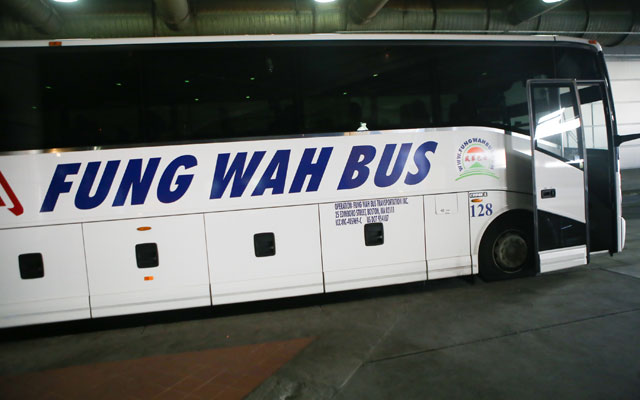The federal regulatory apparatus has made Americans poorer and less safe, and it has eliminated hundreds of jobs by shutting down 41 bus companies in the past year. Ironically, the Federal Motor Carrier Safety Administration (FMCSA) justifies its heavy-handedness as promoting safety, when in fact the shutdowns will likely result in more accidents and deaths by making young travelers more likely to travel by private car.
Fifteen years after President Ronald Reagan allowed competition in the intercity bus industry, a Chinese immigrant named Pei Lin Liang began to offer a simple shuttle service between the Chinatowns of New York and Boston. As word of its service and prices spread, Liang’s “Fung Wah” bus company drew college students, low-income immigrants, and anyone else traveling on a budget.
Professor Nicholas Klein of Rutgers University reviewed the new bus industry in 2009:
Between 2002 and 2003, bus companies reduced fares by half or more; tickets for Philadelphia dropped from $10 each way to $5; for New York to Boston from $25 to $10 each way; and for Washington from $25 to $15 each way. In addition, in newspapers along the Northeast Corridor, articles began appearing describing college students, often non-Asian, who had “discovered” the inexpensive intercity bus services. As a result, new ridership continued to increase, including among non-Chinese passengers.
Even established bus giants followed suit. Greyhound and Peter Pan created the Bolt and YO! bus lines, while a Scottish company added MegaBus to the market. This gave consumers the freedom to pick the company that provided the best price, schedule, service, and safety record.
Until recently, it was a feel-good story for everyone. Bus service improved vastly from Atlanta to Toronto, prices fell, jobs were created, and bus ridership grew 75 percent in 10 years. Fewer cars on the road reduced congestion and emissions, and a few dozen hardworking immigrant families achieved the American dream.
All of this came to a screeching halt in May 2012, when the FMCSA shut down 26 bus companies in a single day because of fatal crashes in 2011. Since then the FMCSA has put 15 more companies out of business by federal fiat, including Fung Wah, which has never been implicated in a fatality. While every death is a tragedy, Americans accept risks as part of life and know about balancing costs and benefits. Yet the FMCSA lumps together administrative failures, such as poor recordkeeping, with actual accidents to create the impression that its heavy hand is the only thing protecting consumers from themselves. The Reason Foundation drew attention to the case of Fung Wah and its competitors with an informative video and a convincing article.
Thanks to overzealous regulators at the FMCSA, college students are more likely to pull an all-nighter driving home from Boston, and out-of-work bus drivers can apply for welfare. Fortunately, the FMCSA does not have the authority to apply the same “safety” standard to regular car drivers.
Nicholas Dau is currently a member of the Young Leaders Program at The Heritage Foundation. For more information on interning at Heritage, please click here.































